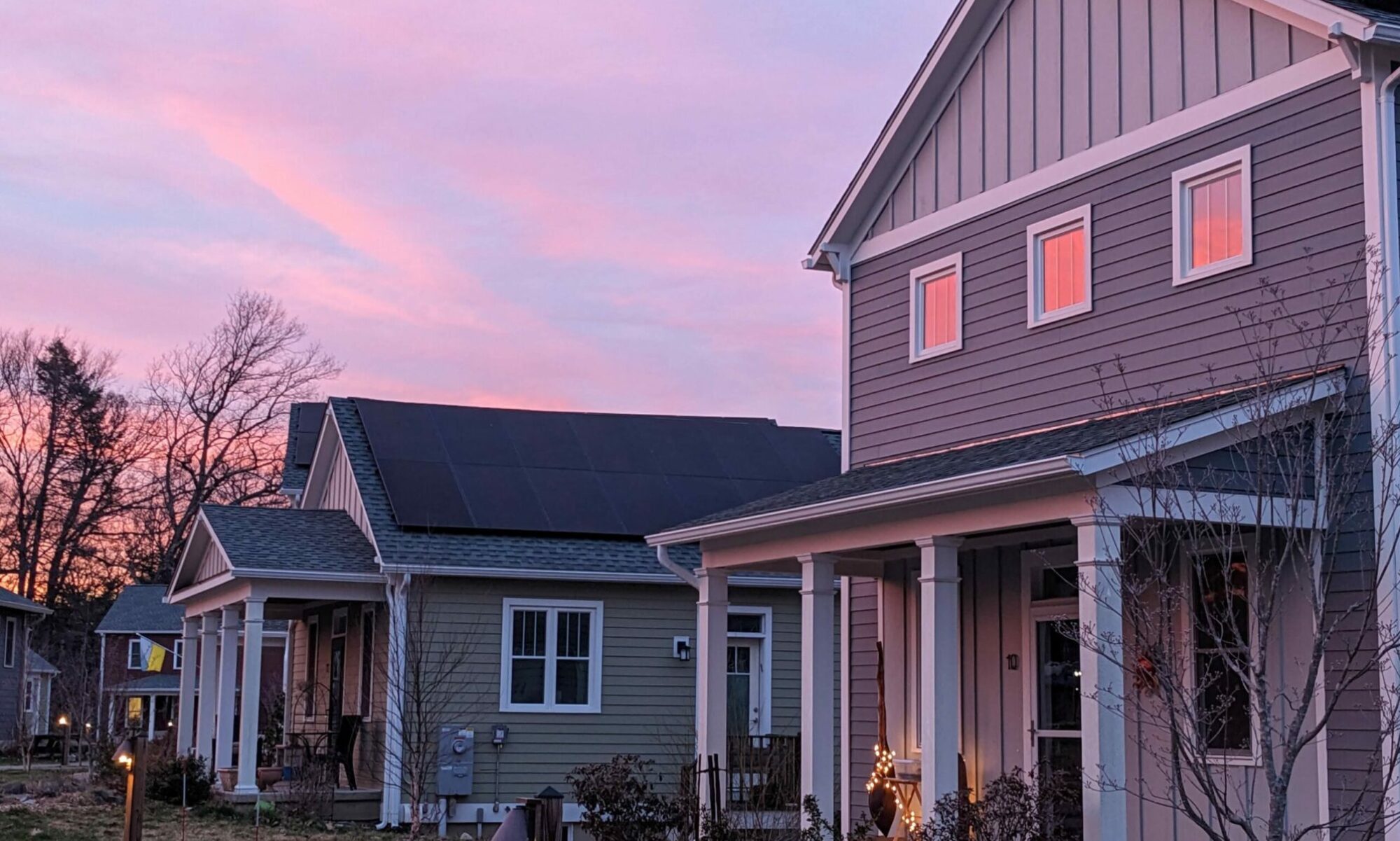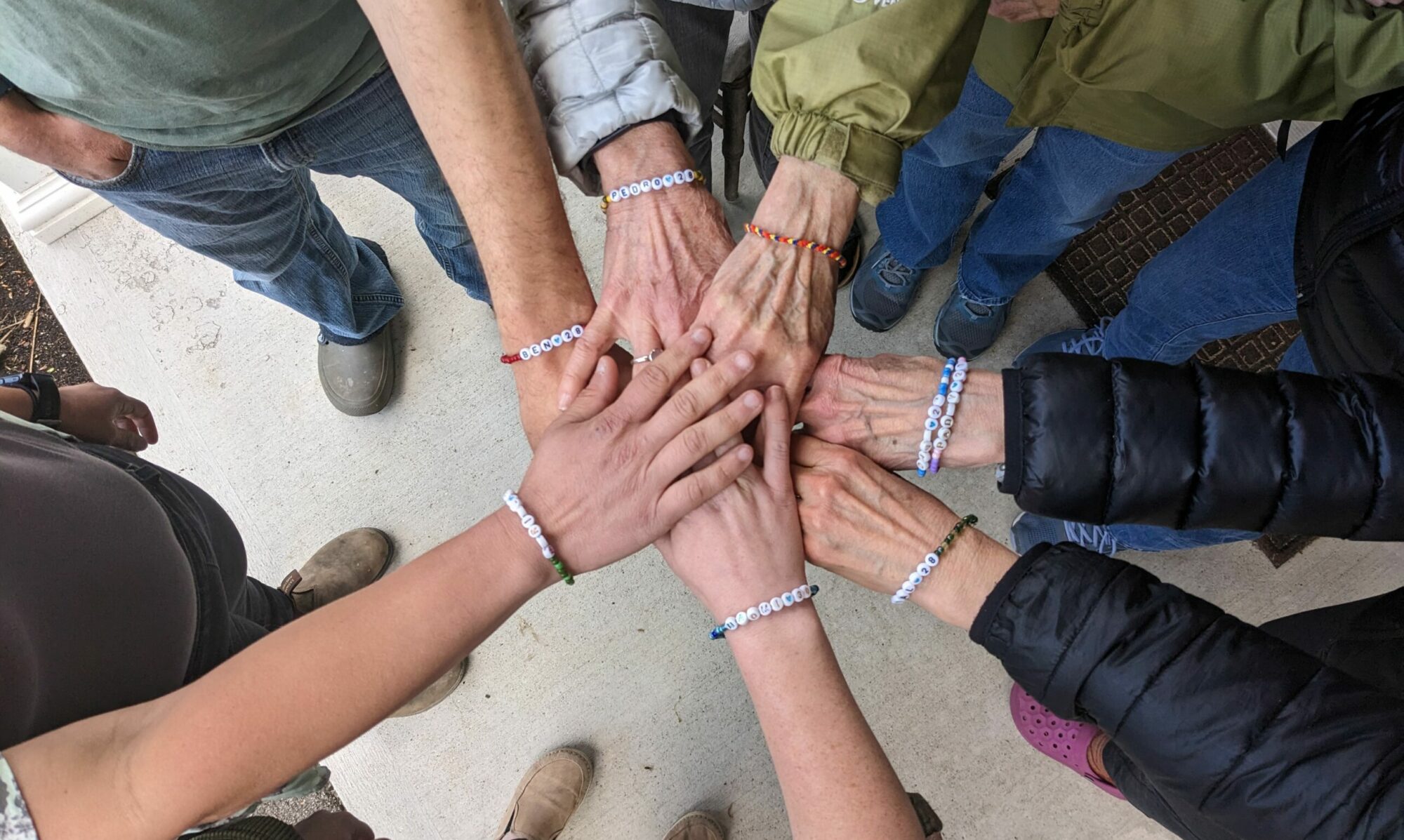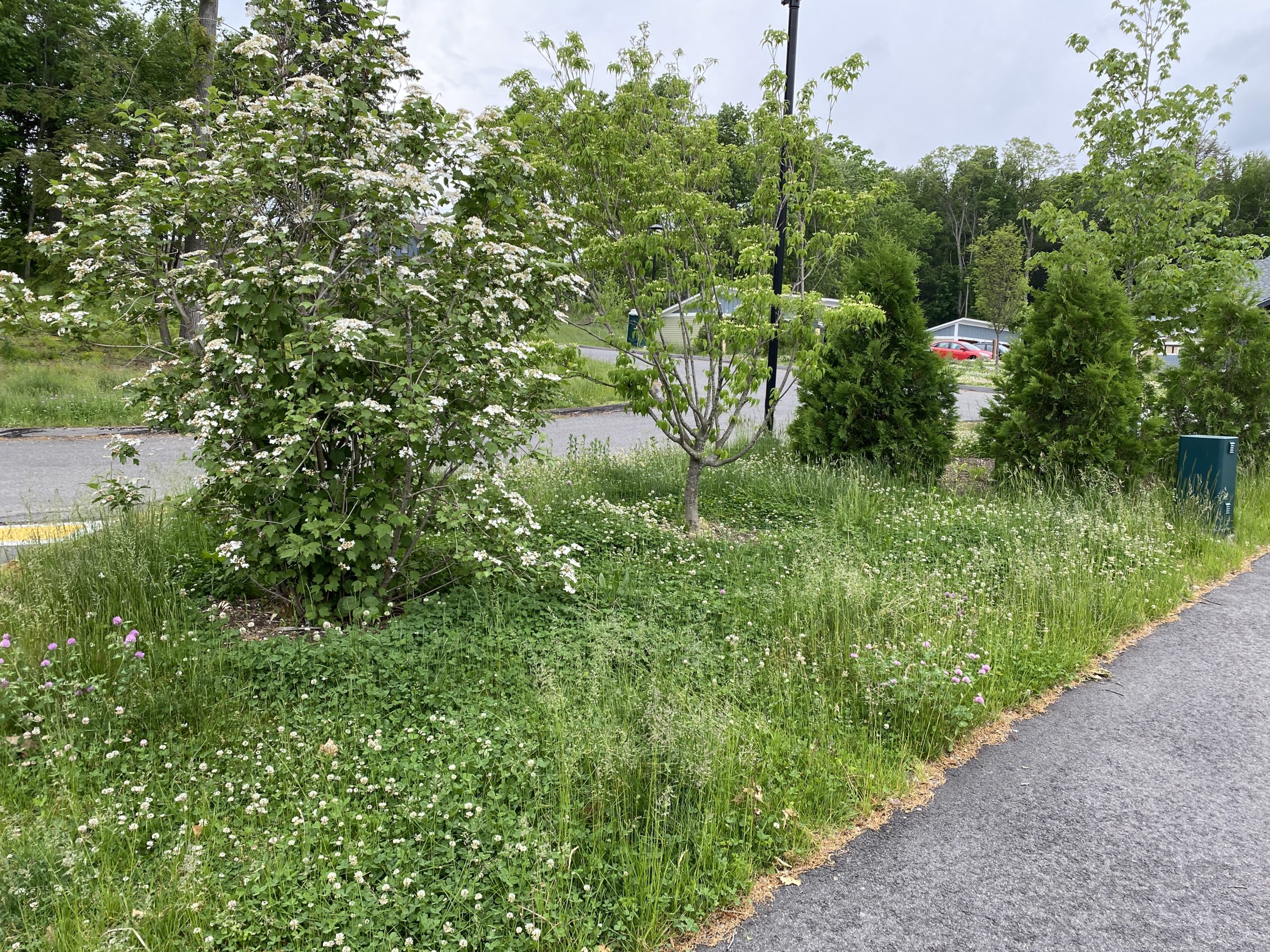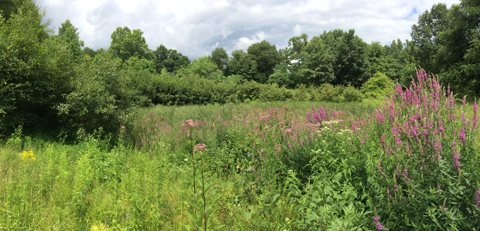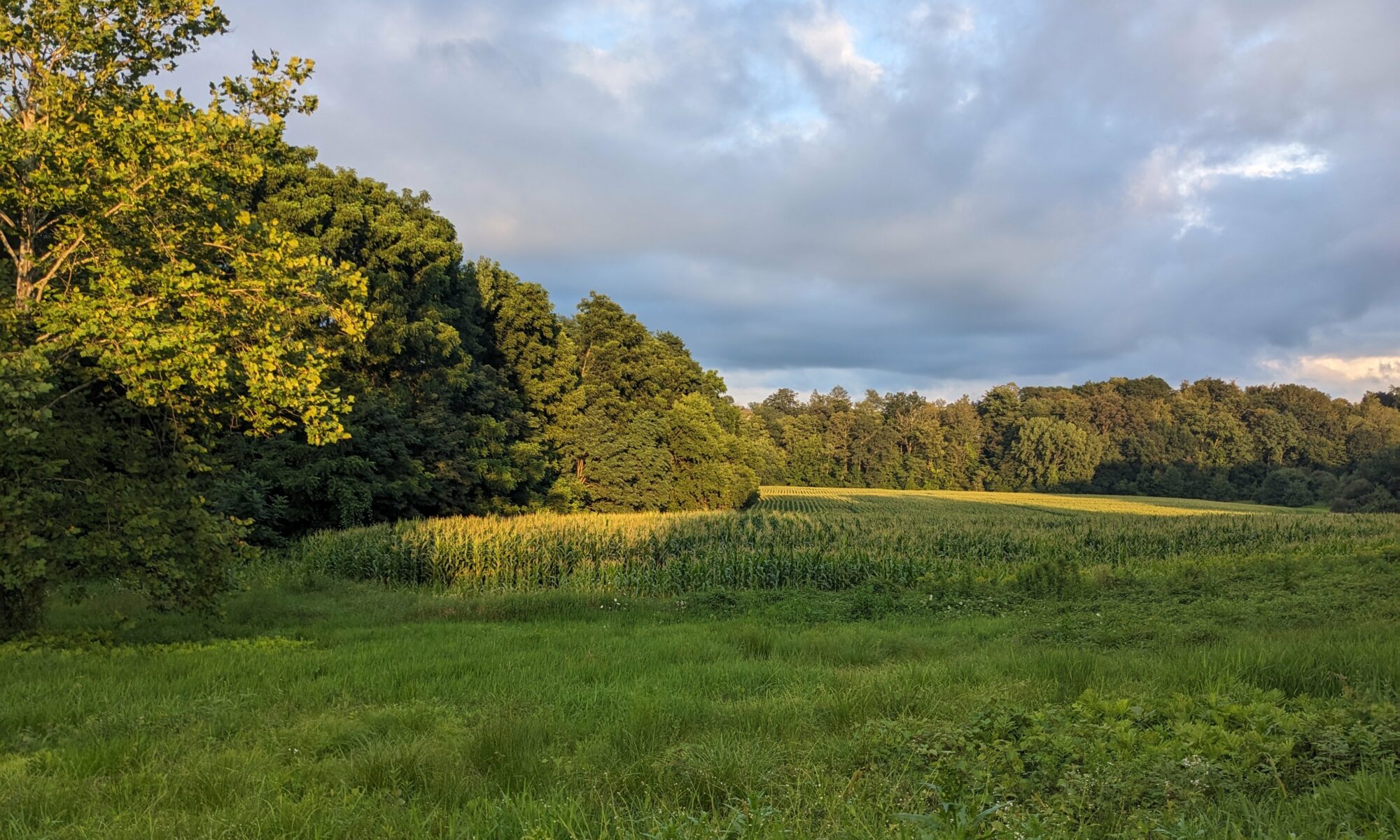New year, new look! Welcome to the redesigned VHC website. We hope you’ll easily find everything you need to learn about our community.
Pictured on this page is a series of friendship bracelets that one of our members’ daughters, Anya, made for people who contributed to her Ovarian Cancer Five Boro Bike Tour fundraiser. It’s just one small example of ways our community came together to support each other in 2023.
At VHC we have a lot to look forward to this year, like welcoming new neighbors, including VHC’s first newborn! 2024 may even bring solar panels to the common house and chickens to the garden. We know there will also be some challenges that we will face together in achieving our sustainability goals, caring for our land and one another, and learning even better ways to organize ourselves for shared decision-making.
If your travels this year bring you to the Northampton area, we’d love to have you join us for a meal, work day, or other event by emailing info@villagehillcohousing.org.
If you’re in the area, come join us for an upcoming meal or event:
Sunday, January 7, 3pm. VHC Live! Screening & Discussion of the film The Ritchie Boys
Wednesday, January 10, 6pm. Board Games
Thursday, January 11, 6:30pm. Community Meal
Saturday, January 20, 9am-4pm. VHC Work Day
Wednesday, January 24, 6pm. Board Games
Saturday, January 27, 6pm. Community Meal
Sunday, January 28, 10:30am. Monthly Members’ Meeting. Hybrid. (Zoom link available)
Sunday, January 28, 12pm. Tour for Visitors. RSVP at info@villagehillcohousing.org
Ongoing:
Mondays, 4-5pm & Thursdays, 5:30-6:30pm. Social Gatherings
Thursdays, 8:30 am. Coffee+ in the Common House Fridays, 11 am-2 pm. Co-working in the Common House
